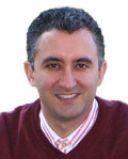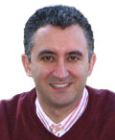Memory
In Memory of Frederick Goodwin
Reflections on a great psychiatrist, a good man, and my closest mentor.
Posted January 21, 2021
A few months ago, the prominent psychiatrist Frederick Goodwin died. The externals are known by many, and described in my formal memoriam: He was a former director of the National Institute of Mental Health, a well-known researcher in mood disorders, first author of the most prominent textbook in mood disorders (Manic-Depressive Illness), a prominent mentor at NIMH of generations of psychiatric leaders, and a leading psychiatrist in Washington, D.C., influential in government circles.
I’d like to write about him here more personally, giving insights about who he was, and reflecting on some things we should learn from his life example.
There was no one closer to me as a mentor and teacher than Fred Goodwin. And there was no one more different than me. I was Iranian, Shiite, a Democrat, an immigrant. He was a Roman Catholic, conservative, Republican, whose ancestor was on that boat with George Washington crossing the Delaware.
And yet, he was so impressive. Not just for what he did, but for how he came back from setbacks to triumph again, over and over again. In one of our last dinners, sitting in a swank Washington restaurant, tears came to his eyes: “We’ve been through a lot together,” he said, looking over at me. He wasn’t one to tear. I remember when his longtime NIMH secretary Harriet wanted to tell him that she had to leave him at the university to return to NIMH; she described to me how Fred didn’t want to face it. Fred attracted wonderful support from others, like his longtime secretary Harriet and his beloved wife of many years, Rosemary. When Rosemary, died, Fred realized how much she had done for him for so long, paying bills, shielding him from everyday life, so he could go on focused laser-like on science and research. Marriage had been so good to him, he told me, he wanted to do it again.
Fred was a father-substitute for me, an American father who could speak to the American part of me. He loved America instinctively; I had to learn to love it consciously and painfully, despite not loving much that it did. He stood for an Americanness that I could respect and admire. We were an odd couple: the tall, very white, American; the shorter, darker, Iranian. And yet he took me in and accepted me. We bonded on being Washington, D.C. area natives, on the Redskins football team, on politics, and on local restaurants.
In my first visit to his office, back in the late 1990s, I was awed by the pictures with the Pope and the presidents; the classic Washington, D.C. power office. But there he was, taking me seriously, this serious man of science. Later he would thank me for bringing him back to the world of research and the psychiatric profession, after his departure from the NIMH under some controversy led some to write him off.
That was the first crisis, the controversy that led to his removal from a high position in government. He left the NIMH, where he had been director, and was given a faculty post at George Washington University. That’s when I visited him. I had good training and nothing else. He had a full career, now seemingly over. But it wasn’t over, and he helped me and I helped him, and together we got going.
I learned from that experience that the world often rejects a good man unjustly. But I also learned that the world’s rejection means much less than it may seem.
Two decades of work together followed, the first few years in person, and then after I moved, weekly by phone. We talked about everything, and anything, and eventually nothing.
Two decades passed, and he recovered his role as a psychiatric leader. He had long treated the powerful of Washington: senators, and news celebrities, and power brokers. I covered for him for a while clinically, when he traveled, and was too impressed by his patients to serve them well. But he served the important and the non-important equally well, and often warned me about the danger of providing poor clinical care to the famous by treating them differently. He could do it; I am not confident I ever learned that skill.
My first international paid speaking event was in his place, in Uruguay. Many more would follow, but he always had me as his back-up if needed, a role I took with gratitude when younger, with pride when older. I’d still back him up if I could.
Years later, we’d both be invited independently by some of our joint colleague-friends, such as the group in Italy that had yearly conferences in Rome. I got to see Fred feted all over the world, and I appreciated it like a proud child.
What I loved most about him is that he never rejected anything that was true. In our scientific work, if something seemed true, he accepted it; if it turned out false, he dropped it. He had an utter honesty of mind that I rarely have seen. I never feared challenging an idea he held, nor feared his challenge of mine. I trusted he only cared to know the truth.
With this truth-devotion came a social tact that served him well. Most people liked him, even if he would disagree with their ideas. He had a huge circle of friends, and a smaller circle of devoted friends, who he got to know well when he was down.
Two decades after the NIMH matter came another crisis: He had established a great PBS radio show, the Infinite Mind, and after a decade it was pulled on the claim of undisclosed pharmaceutical relationships, which everyone knew and which he disclosed in his many lectures and papers. How it was undisclosed is unapparent to me.
He went on for another decade writing, and speaking, and seeing patients. He loved seeing patients, much more than me. He was a doctor who loved doctoring. But patients don’t always return the love. Some legal matters toward the end of his working life were troublesome to him, and he finally closed his clinic.
We traveled together at national conferences; in the last one in Toronto a few years ago, he was in a large audience when I spoke about the core clinical issue we always discussed: the inefficacy of antidepressants in bipolar depression. That was the best presentation I’ve ever heard you give, he told me; you had it just right, in content and style. Perfect. I had peaked. I know he sat there in the audience like a proud father. He had passed the torch. Whether I could carry it was another matter.
Then he remarried, stopped seeing patients, and moved into a few years of silence. Parkinson’s disease progressed, and limited his mobility and stability. His mind was clear mostly, but it was harder and harder to function.
The last time I saw him, about a year ago, he looked at my newly published textbook on clinical psychopharmacology, dedicated to him, paged through it as I sat there, and said: “This is very philosophical; it brings out concepts and ideas that most people will appreciate.” He smiled. He was happy. I was happy. Years ago, another of my mentors, Gary Sachs, was introducing Fred for a talk in Boston. I was in the audience. Gary was praising the immense impact of Fred's textbook, and said that if Kraepelin had written the Old Testament, Goodwin had written the New Testament. Then he looked at me in the audience and remarked, maybe someday Nassir will write the Koran! As Fred looked approvingly at my textbook, that event surged up in my memory. Maybe I had finished my Koran.
When his wife died, he wrote and delivered her eulogy. I wasn’t there, but he later gave the written text to me, entitled “A eulogy for my wife.” He quoted the French Catholic Saint Bernard of Clairvaux, who said, in his eulogy for his brother: “I can never lose one whom I have loved unto the end; one to whom my soul cleaves so firmly that it can never be separated does not go away but only goes before.”
In Fred’s Catholic belief, he has joined Rosemary. And he has left behind a life full of activity, and service, and joy to his many children and grandchildren, and his nonbiological children and grandchildren. He always said to me: “Nassir, a scientific generation is a decade.” He was three decades older than me biologically, but he was my scientific father, given how closely we worked together. He loves you like a son, his secretary Harriet told me back in the 1990s; I was embarrassed, but I realized he loved easily, as we all should, and he engendered love in return: “We’ve been through a lot together.”
He got to know my father well. They attended a congress or two together in D.C. I would be up there speaking, and my father, a neurologist, and Fred would be in the front row of the audience. They would talk to each other; my father would ask Fred to keep an eye on me, to not let me be too radical or too difficult with colleagues. Fred would hasten to agree. Keep your focus, Nassir, he would say when he came across a piece of poetry I wrote. Tone it down, he’d say, if I got hot in a symposium: Make a point without making an enemy.
I know he regretted that I moved away and was not with him in person enough in his last two decades. I regretted it too. There were the weekly phone calls and the frequent visits; but it wasn’t the same. He called it the Boston-Washington axis, and we visited each other a lot. But in the last few years, the calls ended. I knew he was there, but I couldn’t get to him. I was there for his wedding to his second wife, and I was happy to see him happy. And there were the occasional calls and visits afterwards, just like old times.
He left us. And we were left feeling like he felt when his wife died; or like St Bernard, who had something else to say that feels right: “We find rest in those we love, and we provide a resting place in ourselves for those who love us.”
He was a resting place for his patients, his family, his many close friends, and for me. We rested for a long time. And now he rests.




